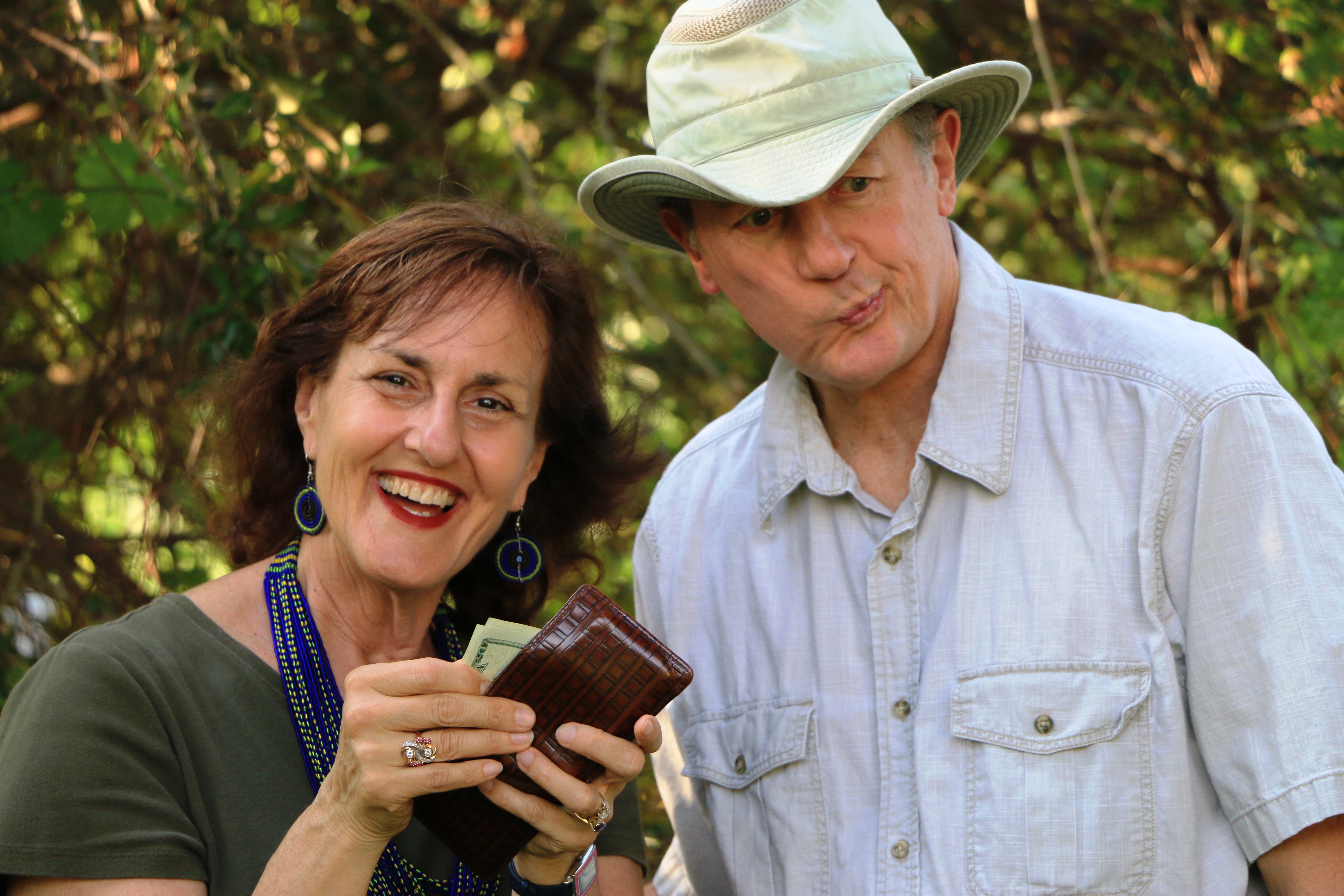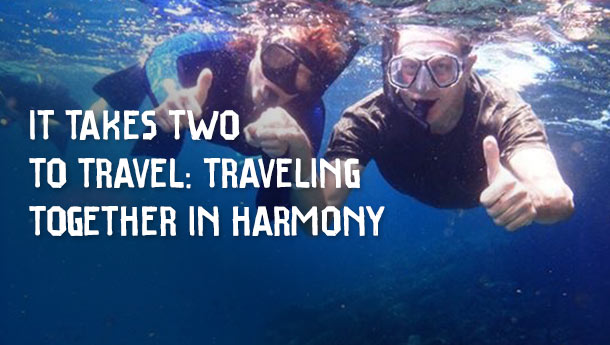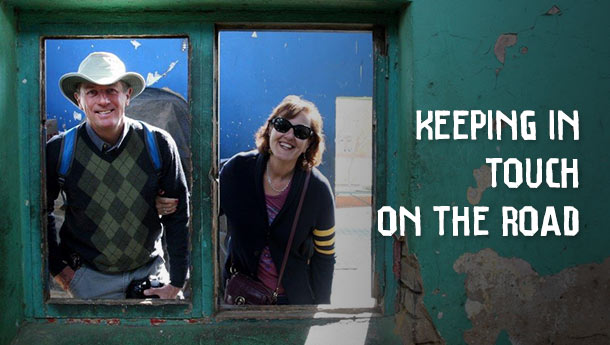
Okay, you’ve made up your mind. You’ve picked your next destination. Now, the fun…and just a bit of work…begins. As a Boomer/Senior, you’re savvy and cost-conscious. Here are ten tips to save money up front.
1. Decide if a package tour is what you need.
We would argue if you’re planning a trip within the U.S. or Canada or many other countries like France, Italy or the UK, you can save money if you DIY (Do It Yourself). Either way, package tour itineraries provide a useful benchmark to see if you’re visiting the best places and getting the best deal versus doing it yourself. We always start trip planning by checking an itinerary of an established group tour, then follow their lead, expand and contract on their ideas. Stay longer at places you’re eager to explore. Cut out other destinations completely. Go to the library. Get the latest guidebooks on your destination. Tailor the perfect trip to save money and fit your passion at the same time. And visit blogs from people who have been (not just ours).
2. Package Tours Can Save Money
Outside your country, especially if you are going somewhere exotic (meaning language/security challenged etc), start the process by looking at package tours. You may say you don’t like the idea of being in a herd, regimented or on a bus, but honestly, take another look. We also rejected the idea, but then decided, for example, that India was just too much hassle to do by ourselves. Since that incredible trip, we’ve been more open, and have had fabulous experiences and made really long-lasting friends, plus we save a lot of money on group tours (and you’re talking to two folks who generally avoid cruises, which are different). Before ruling out group tours/escorted trips as an option, please read our fuller discussion on this topic. If you decide on a group tour, it’s especially useful to get on some mailing lists like Hotwire.com or TravelZoo. (By the way, booking African Safari trips are thoroughly discussed in different blog posts in our Blog section – safaris are our particular expertise). If you’re watching your budget, here are some tour companies we’ve had great trips with – Friendly Planet, Gate 1 and World Spree (for Asia). We’ve also booked tours using the New York Times’ TravelZoo weekly newsletter – and yes, even Groupon Getaways. OAT (Overseas Adventure Travel) trips are great. They frequently are more expensive than the companies mentioned above, but their strength is in the quality of their guides. They are amazing on history, culture, and facilitating interaction with the local populations. Make sure to also check the national airlines of the countries you’re going to visit. Many times, they – like South African and Icelandic – offer reasonably priced package tours. We often find that it’s cheaper to just buy the ground portion of a tour and negotiate the airfare ourselves.
3. Shop around for your airfare
Even if you are booking a package tour, you may want to book your own air to save money. Why? It used to be that tour companies got lower rates for air than you could get yourself. That’s not necessarily true any longer. There are plenty of variables, such as your departure city, what day you decide to leave and so on. You may want to add days before or after the guided tour part begins, and you may save money by taking a circuitous route to get to the starting point of the tour . For example, flying anywhere in Europe via Iceland is usually cheaper than going direct – and you have the opportunity to see another place. Check out the amazing deals on Norwegian Air to Europe. Some of our most-referenced airfare sites for bookings are kayak.com and Google flights. which do a good job but our first choice is Skysaver because it offers many more options and info on best time to buy. Some budget airlines do not list on some of the most referenced sites. For example, you won’t find JetBlue or Southwest on a Kayak list.
4. Think about stopovers
These days, several airlines offer free stop-overs in their home country. For example, Derek and I went to Croatia on a group tour. We booked our own air on TAP Portuguese airlines. We made the most of their free 3-day stopover, and got a great taste of Portugal. Then, we continued on to meet the Croatia tour. Our airfare is cheaper than that offered by Gate 1.
5. Think about departure days
Is buying airfare on one specific day of the week cheaper than other days? One recent article in a well respected business magazine states that Tuesday afternoon after 3 pm is the optimum time for cheap tix. We advise you to keep your ear to the ground, watch out for airline sales, and keep checking. The other variable is: how far in advance to book? That’s an unknown because airfare pricing is driven entirely by supply and demand, with algorithms figuring things out many times a day, but Google Flights and Kayak both have an indicator of when is the best time to buy for that particular destination. Pay attention, and you’ll save. Generally, we don’t recommend booking really far in advance because it’s a horrible feeling to find that fares have dropped closer in. Boomers and Seniors have been brought up on the mythology that the further out you book, the more you save. It’s just not so. Instead, save money by planning your trip based on a supply and demand mentality. Ninja airfare savers know that going through the “inconvenience” of traveling on Christmas Day (for example) can save a bundle. Pick a time when not everyone else is going. As a Senior, you generally have more time flexibility than other people, so use that flexibility to avoid the crush – and the high prices.
6. Hotel Booking
Our favorite websites are Booking.com and Tripadvisor.com. Honestly, these aggregators do a great job. We’ve also never been disappointed by Priceline – and other sites where you can specify which neighborhood you’d like to be in – and your budget, but you won’t know exactly what property you’ll get till you pull the trigger. You can see more detail on this at our discussion here. Make sure to also make the time to call the property directly. Are you a member of AAA or AARP? Ask for those special rates. By the way, AirBnb now sells more accommodation nights than than anyone else in the world, and can be a fabulous option.
7. Book your car
One of the first things to do is to book a car. The reason is that in busy times, cars can suddenly become very scarce. You may not even decide to rent after all, but if you lock in a car early, then you always have that option. We nearly always avoid the prepaid option, because, unlike airfares, it’s free to book and free to cancel if we change our minds. Our first “go-to” site is carrentals.com. We’ve found the options offered by airline sites to book a car just after you’ve completed your air ticket purchase is often more expensive than going directly to car rental sites like carrentals.com.
8. Local Transportation
Local transportation factors in as a big cost in many places. Taxis are exorbitant in most places (with some great exceptions). Thank goodness there’s Uber, and or Lyft. Use them because they’re generally cheaper than taxis – but you have to have a smartphone and their apps, so we’ll discuss that below.
You can also save by booking some subways passes in advance. In London, for example, there’s the Londonpass, which gives you free entry to lots of attractions plus an unlimited Oyster Travelcard for 3, 4, or 6 days. You save on both transport and attractions. In Europe, the EurailPass will give you the freedom to just grab a train when you want at much lower prices than buying individual tickets – plus it works on many subway systems as well. It all adds up. Read more about local transportation here.
9. Look for On the Ground deals for attractions
There are plenty of websites that offer day tours, advance package deals (like the Londonpass mentioned above). Instead of buying individual tickets and waiting in line, it’s so much easier to buy online, and march up to the entrance, ticket in hand, knowing that you paid less than the suckers standing in line to pay full price. Even if you don’t save money, check out the online option. There have been many times, such as at the Monet Museum in Giverny or the Musee D’Orsay in Paris, or the Table Mountain cable car in Cape Town, where we saw a long line waiting to buy tickets and get in. We joined the line, while Derek quickly went online on his phone and bought the tickets online. Then we went straight to the front of the prepaid ticket line and were in.
Look for City passes for the place you’re going, and look out for the guide to these deals we’ll be publishing soon. Of course, take full advantage of your Senior status and always ask for the Senior/”Pensioner” rate! In many countries, senior discounts start at a younger age than in the US.
10. Cell Phones
There is no tool more important to your successful trip than having a smartphone with data available at your fingertips. We always find that having a local SIM card for data on one phone, and another phone still carrying our US number is the best way to go. You can buy a local sim in advance for a much higher price than when you get there, using services such as Worldsim, but there still much cheaper than the egregious international roaming charges that US cell companies charge when you travel overseas. Recently, AT&T and others have started offering a $10 per day unlimited rate while you roam overseas. That’s a big improvement over their previous crazy $25 per megabyte ripoff charges, but still not nearly as cheap as buying a local SIM. The best way to buy a local SIM is usually at the cell phone company kiosks in the airport outside customs just after you arrive. It’s usually best to buy from the most famous carriers in that country (which you will of course research before you you get there). Although there are plenty of free wifi spots in most countries, having data at your fingertips is, in our opinion, ESSENTIAL. We discuss this more here.
There they are: ten tips that, if you follow them, are sure to save you a bundle. As Derek says, “any fool can pay retail.” It’s our job to help you travel smarter, cheaper and happier, so we hope you find them valuable.
I can’t tell you what a kick we get out of people coming back from a trip raving about the experience and reflecting on the thousands of dollars they saved just because they did the homework.
We hope you’ll find the same!
By the way, many of the links mentioned in this article are to the affiliates we’ve used or recommend. We receive a small commission if you book through our link, and the price is the same or sometimes less compared to booking direct. So please help us keep this website going by clicking on the links on the site versus Googling the names of our vendors and then clicking on their sites.
Thanks and bon voyage!
Derek and Elaine












